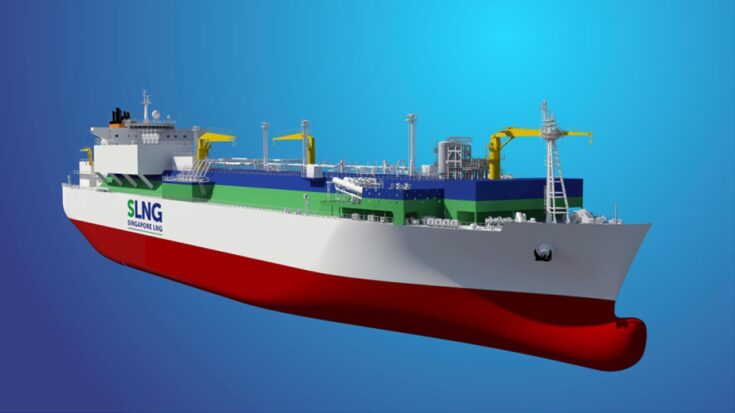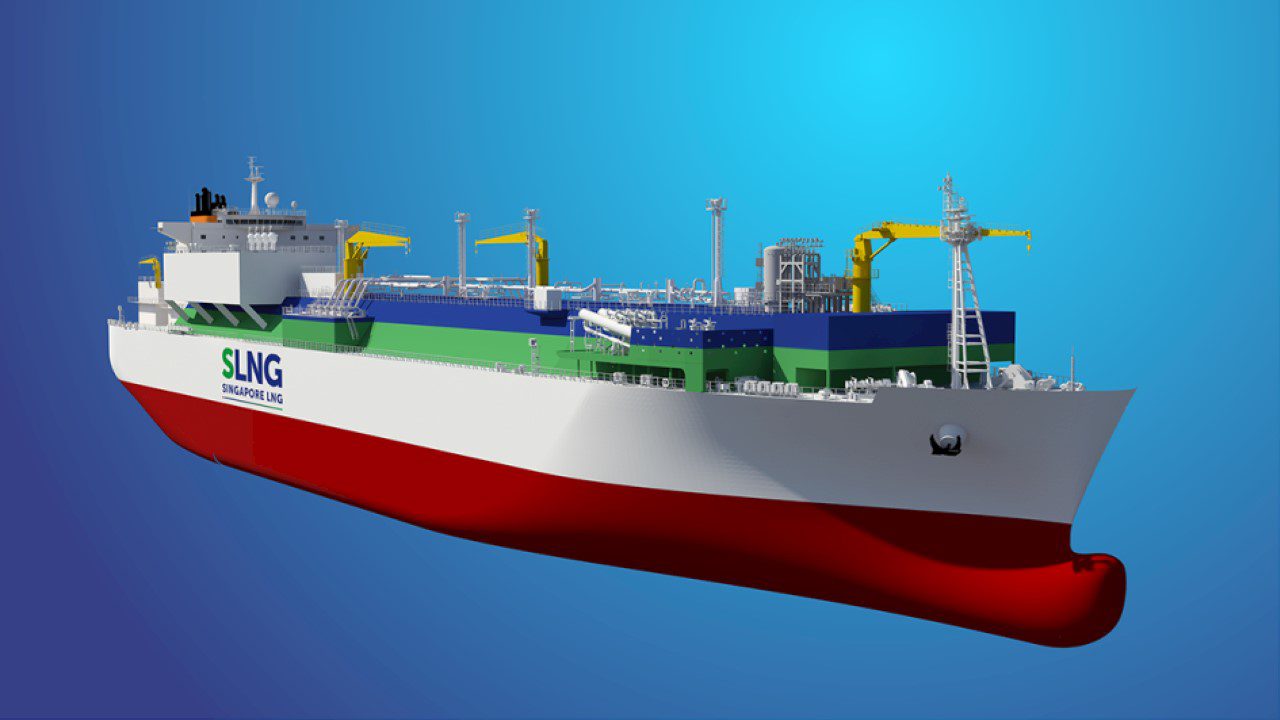
Swedish-Swiss technology company ABB has been awarded a contract by South Korea’s Hanwha Ocean to supply a complete electric power and propulsion system for Singapore’s first floating liquefied natural gas (LNG) terminal.
The Floating Storage and Regasification Unit (FSRU) will feature ABB’s integrated electrical system, including a medium-voltage generator, 6.6 kV switchboards, motor, transformer, and drive for propulsion. The installation will also include ABB’s remote control and diagnostics system, condition monitoring solution, and enhanced power protection system.
Hanwha Ocean will deliver the FSRU to owner Mitsui O.S.K. Lines (MOL) in 2027. The vessel will be contracted on long-term charter by Singapore LNG Corporation and moored at Jurong Port. It is scheduled to be connected to Singapore’s gas network in 2030. With a capacity of 200,000 cubic metres of LNG, the terminal will increase the city state’s LNG import capacity by 50 percent compared to the current land-based terminal.
“This collaboration underscores our shared commitment to innovation, reliability, and sustainability, and is ABB’s latest contribution to the critical infrastructure supporting Singapore’s position as an important LNG hub in Asia,” says Rune Braastad, Global Business Line Manager, Marine Systems at ABB.
The new terminal is a strategic investment in Singapore’s energy infrastructure and forms part of its transition towards net-zero emissions. According to Singapore LNG, the facility will process up to five million tonnes of LNG annually, adding flexibility to the country’s energy system.
The Asia-Pacific region accounted for two-thirds of global LNG demand in 2024, according to energy consultancy Wood Mackenzie, and the outlook remains strong as stakeholders balance energy security with economic realities. ABB, which has operated in Singapore since 1971, sees the project as another step in supporting the region’s growing energy needs.
Hanwha Ocean, one of the world’s leading builders of LNG carriers and FSRUs, has delivered 23.4 percent of the global gas fleet and recently completed its 200th LNG carrier.
Source: PortTechnology and gCaptain
